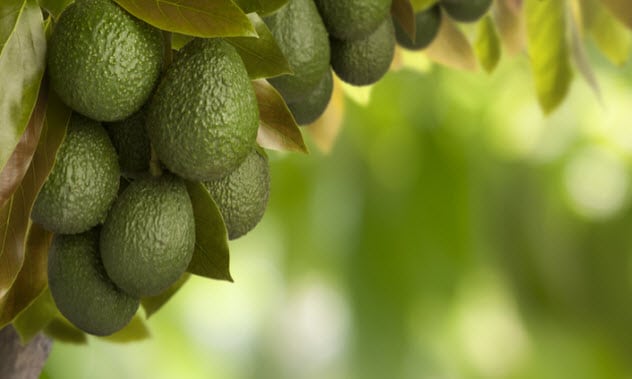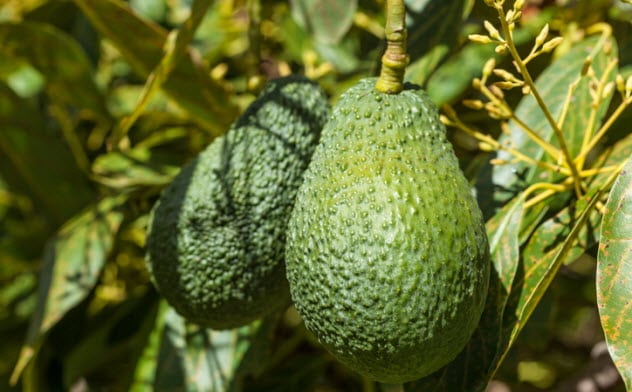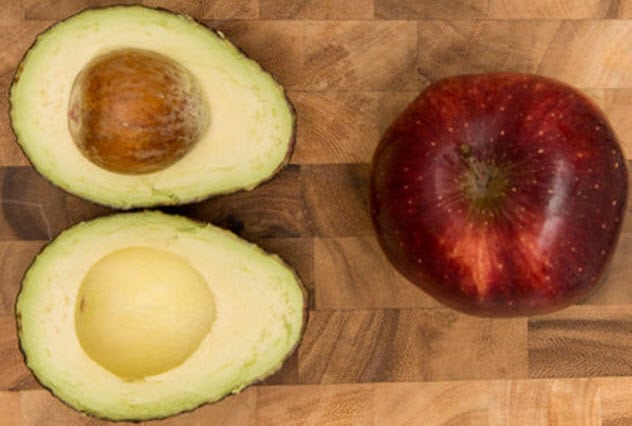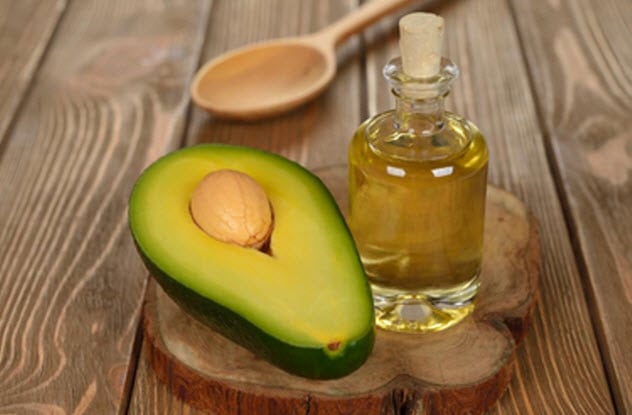 History
History  History
History  Weird Stuff
Weird Stuff 10 Wacky Conspiracy Theories You Will Need to Sit Down For
 Movies and TV
Movies and TV 10 Weird Ways That TV Shows Were Censored
 Our World
Our World 10 Places with Geological Features That Shouldn’t Exist
 Crime
Crime 10 Dark Details of the “Bodies in the Barrels” Murders
 Animals
Animals The Animal Kingdom’s 10 Greatest Dance Moves
 Movies and TV
Movies and TV 10 Box Office Bombs That We Should Have Predicted in 2025
 History
History 10 Extreme Laws That Tried to Engineer Society
 History
History 10 “Modern” Problems with Surprising Historical Analogs
 Health
Health 10 Everyday Activities That Secretly Alter Consciousness
 History
History 10 Dirty Government Secrets Revealed by Declassified Files
 Weird Stuff
Weird Stuff 10 Wacky Conspiracy Theories You Will Need to Sit Down For
 Movies and TV
Movies and TV 10 Weird Ways That TV Shows Were Censored
Who's Behind Listverse?

Jamie Frater
Head Editor
Jamie founded Listverse due to an insatiable desire to share fascinating, obscure, and bizarre facts. He has been a guest speaker on numerous national radio and television stations and is a five time published author.
More About Us Our World
Our World 10 Places with Geological Features That Shouldn’t Exist
 Crime
Crime 10 Dark Details of the “Bodies in the Barrels” Murders
 Animals
Animals The Animal Kingdom’s 10 Greatest Dance Moves
 Movies and TV
Movies and TV 10 Box Office Bombs That We Should Have Predicted in 2025
 History
History 10 Extreme Laws That Tried to Engineer Society
 History
History 10 “Modern” Problems with Surprising Historical Analogs
 Health
Health 10 Everyday Activities That Secretly Alter Consciousness
10 Lesser-Known Weird Facts About The Avocado
The avocado is potentially both the most loved and the most hated fruit of our time. (Yes, fruit—for those who may be late to the avo-craze. Technically, it’s a big berry with one large seed inside that’s known as a pit or stone. Bottom line, it’s not a vegetable.)
We love it on our toast, and we love it smashed with onions and cilantro on our tacos. But we sure hate it when we’ve had 18 conversations about avocados this week and it’s only Monday.
The average consumption of avocados in the US is projected to reach up to 22.7 million kilograms (50 million lb) per week by 2019. With that many avocados moving around us, there is a lot of talk about what they can do. Read on to discover more crazy and fascinating facts about this popular fruit.
10 Avocados Are Poisonous

The avocado contains a fungicidal toxin called persin that is completely harmless to humans. However, it is poisonous for many other animals. So, as much as we enjoy guacamole, we should not share it with our animal friends.
Persin—and therefore, avocado—is poisonous to birds, rabbits, cows, goats, horses, pigs, sheep, and fish. Avocado pits were even mixed with cheese to kill rodents according to a South American folk recipe for rat poison.[1]
Rumors that avocados are poisonous for dogs have led to various studies of the effects on our furry pals. Unfortunately, the evidence has been inconclusive and conflicting.
Some reports claim that dogs and cats have upset stomachs after consuming persin, and others see no serious illnesses that result from eating it. Although modern research suggests that dogs can eat avocados and that their toxicity is a myth, the pits could be a choking hazard for your pet.
9 They Belong In The Bathroom

It sounds a little gross, but lathering your hair in a mash of avocado can actually help your hair grow. As this superfood contains a lot of fatty amino acids, it can coat strands of your hair and really lock in moisture. Moisture retention will help smooth and soften your dry hair, which is good for keeping your hair strong and able to grow fast and healthy.
A variety of vitamins and minerals—such as copper, iron, and vitamins A, D, and E—are found in avocados and assist with hair growth. A healthy scalp is also important for hair growth. Avocados can soothe and stimulate dry scalps, keeping them nice and hydrated.
If you want to prevent hair loss or help your hair to grow long, shiny, and soft, keep avocados in your kitchen . . . and your bathroom.[2]
8 They Have A Long History

Although it seems logical that the avocado’s popularity occurred because it’s photogenic (thank you, Instagram), a long history led to our obsession with the green fruit. We all have to thank Rudolph Hass and his children, who created a new variety of avocado, the Hass avocado, in the early 1900s.
Mr. Hass grew the new avocado in his own backyard. Before this, it was enjoyed by many in Central and South America but not so much in the United States. It was referred to as ahuacate, which was too hard for Americans to pronounce and did not market well to them.[3]
The Hass variety of the avocado—one of over 400—is smaller and has thicker skin than other types, is easier for farmers to cultivate, and has a good, nutty flavor. Mr. Hass’s high-quality avocado trees became more accepted throughout the decades. This allowed prices to decrease, which increased demand for the fruit.
Also contributing to its popularity was the 1965 Immigration and Naturalization Act, which brought more Latin Americans and their love for avocados to the United States. Now, thanks to marketing efforts and low prices, Mr. Hass’s avocado is in such high demand that our entire continent is experiencing shortages.
7 They Are An Aphrodisiac Legend

Long ago, the avocado was enjoyed by many in Central and South America. They called it ahuacate, which means “testicle” in Aztec. If you’ve never thought of it before, you now realize that the shape of the avocado gave rise to the Aztec name. As a result, the avocado was a legendary aphrodisiac.[4]
Obviously, this was bad for the fruit’s marketing efforts in the early 20th century. Back then, most Americans were not inclined to purchase a fruit that had become so associated with being an aphrodisiac, legend or not. The current name was devised by California farmers and significantly improved the fruit’s appeal over the following years.
6 When We Think Avocado, We Should Think Cartel

The Michoacan region of Mexico has the perfect conditions for growing avocados. The hot, rich soil produces more than half of the avocados served throughout the world. The large sales of this fruit make up 90 percent of the area’s revenue.
Over the last few years, many stories of the cartel kidnapping farmers and extorting landowners have gone beyond the cocaine trade to include the avocado business. Avocado farmers who have refused to give up part of their profits have found their lives threatened and their crops burned down. A report in 2014 even stated that an infamous gang made $152 million a year from frightened farmers in this area.[5]
5 It’s Actually An Alligator Pear, See It?

The avocado has an awesome nickname which is almost never used. According to legend, an early English word for the avocado was “avogado pear.” This most likely was a translation mishap or came from someone who didn’t know what to call it.[6]
This name led to “alligator pear.” Although an accident, the nickname suits the fruit very well. Shaped like a pear, the avocado has skin that resembles that of a reptile, specifically an alligator.
4 They Ripen Around Companions

If you really need your avocado ripe and ready to eat, there is a way to speed up the process. Some fruits—such as apples, bananas, apricots, nectarines, and plums—produce ethylene gas, which is a ripening agent.
Put your avocados inside a paper bag with any of these fruits, and the gas will cause the avocado (and the other fruits involved) to ripen much faster. It is important to keep an eye on the fruit because it could be ready for consumption the next day.
Furthermore, the paper-bag-and-fruit methods can potentially alter the taste of the avocado. Depending on how you are using it, this could be either good or bad.[7]
3 A Multimillionaire Told Us To Stop Eating Them

Why did a multimillionaire tell us that we had to stop eating avocados? Because if we spend our money on them, we won’t be able to afford a house.
According to a study by HSBC, only 35 percent of millennials in the United States in 2017 were homeowners, with most of the others saying that they hadn’t saved enough to put down a deposit. During a 60 Minutes interview, property tycoon Tim Gurner, then 35, said that unnecessary spending on avocados is a big reason why people can’t afford a house.[8]
Although lifestyle expectations are continuously changing and prices of homes seem to keep rising, this may be something we need to think about!
2 Avocado Is Butter

Healthy bakers have discovered that avocados can be used as a butter replacement in almost all muffin and cake recipes. While it may require a little bit of math to measure out the perfect amount, the benefits could be worth the trouble.
Butter has a lot of calories and unhealthy fat. Avocados slice the number of calories from butter by more than half when used in baked goods. There are only about 109 calories in half an avocado.[9]
Even though it may change the taste a little, the trade-off adds protein and lowers cholesterol and saturated fat levels.
1 Avocados May Have Antiaging Benefits

The avocado is considered a superfood because it contains numerous vitamins. It also has “good fats,” some protein, and antioxidants. Vitamins A and E, both found in avocados, help to keep skin nourished and moisturized and may assist with keeping cells healthy and young.
When we add avocados to our diet, we may be delaying the natural aging process of our cells. Eating avocados or using them as a face mask by mixing them with honey, yogurt, or oatmeal can give your skin a youthful glow.[10]
Read more surprising facts about fruit on Top 10 Surprising Histories Of Common Fruits and 10 Fascinating Facts You Didn’t Know About Fruits.





![11 Lesser-Known Facts About Mass Murderer Jim Jones [Disturbing Content] 11 Lesser-Known Facts About Mass Murderer Jim Jones [Disturbing Content]](https://listverse.com/wp-content/uploads/2020/09/jonestown2-copy-150x150.jpg)


